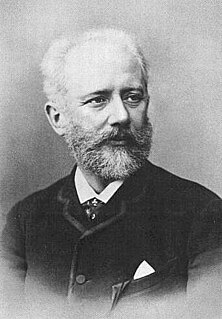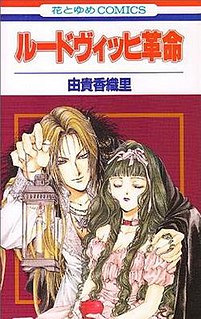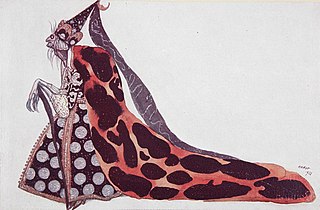
A "spinning wheel" is a device for spinning thread or yarn from fibres. It was fundamental to the cotton textile industry prior to the Industrial Revolution. It laid the foundations for later machinery such as the spinning jenny and spinning frame, which displaced the spinning wheel during the Industrial Revolution.

"Sleeping Beauty", or "Little Briar Rose", also titled in English as "The Sleeping Beauty in the Woods", is a classic fairy tale about a princess who is cursed to sleep for a hundred years by an evil fairy, to be awakened by a handsome prince at the end of them. The good fairy, realizing that the princess would be frightened if alone when she awakens, uses her wand to put every living person and animal in the palace asleep, to awaken when the princess does.

Maleficent is a fictional character who appears in Walt Disney Productions' 16th animated feature film, Sleeping Beauty (1959). She is an evil fairy and the self-proclaimed "Mistress of All Evil" who, after not being invited to a christening, curses the infant Princess Aurora to "prick her finger on the spindle of a spinning wheel and die" before the sun sets on Aurora's sixteenth birthday.

In fairy tales, a fairy godmother is a fairy with magical powers who acts as a mentor or parent to someone, in the role that an actual godparent was expected to play in many societies. In Perrault's Cinderella, he concludes the tale with the cynical moral that no personal advantages will suffice without proper connections.

The Pentamerone is a seventeenth-century fairy tale collection by Italian poet and courtier Giambattista Basile.

Sleeping Beauty is a 1959 American animated musical fantasy film produced by Walt Disney based on Sleeping Beauty by Charles Perrault. The 16th Disney animated feature film, it was released to theaters on January 29, 1959, by Buena Vista Distribution. This was the last Disney adaptation of a fairy tale for some years because of its initial mixed critical reception and underperformance at the box office; the studio did not return to the genre until 30 years later, after Walt Disney died in 1966, with the release of The Little Mermaid (1989).

The Sleeping Beauty is a ballet in a prologue and three acts, first performed in 1890. The music was composed by Pyotr Ilyich Tchaikovsky. The score was completed in 1889, and is the second of his three ballets. The original scenario was conceived by Ivan Vsevolozhsky, and is based on Charles Perrault's La Belle au bois dormant. The choreographer of the original production was Marius Petipa.

Peau d'âne is a 1970 French musical film directed by Jacques Demy. It is also known by the English titles Once Upon a Time and The Magic Donkey. The film was adapted by Demy from Donkeyskin, a fairy tale by Charles Perrault about a king who wishes to marry his daughter. It stars Catherine Deneuve and Jean Marais, with music by Michel Legrand. Donkey Skin proved to be Demy's biggest success in France, with a total of 2,198,576 tickets sold.

Ludwig Kakumei is a Japanese manga series by Kaori Yuki. It debuted in the January 1999 issue of the shōjo manga magazine Melody, before being transferred to Hana to Yume Step, Hana to Yume, and finally Bessatsu Hana to Yume, where it concluded in the September 2007 issue. The sixteen chapters were compiled into four bound volumes by Hakusensha, and were published from June 2004 to December 2007. The series follows Ludwig, a self-centered, flamboyant prince, as he travels with his loyal, soft-hearted valet in search of a bride.

Spindle's End is a retelling of Sleeping Beauty by author Robin McKinley, published in 2000.

Cinderella is a 48-minute animated film adapted from the classic fairy tale, "Cinderella" by Charles Perrault. It was originally released directly to video in 1994. The movie was produced by Jetlag Productions and was distributed to DVD in 2002 by GoodTimes Entertainment as part of their "Collectible Classics" line.

The Wicked Fairy Godmother or the Wicked Fairy, a rare figure in fairy tales, is nevertheless among the best-known figures from such tales because of her appearance in one of the most widely known tales, Sleeping Beauty, and in the ballet derived from it. Anonymous in her first appearance, she was later named in some variants Carabosse and is called Maleficent in Walt Disney media.
Jetlag Productions is an American animation studio with a reputation for creating Mockbuster animated films.
Sun, Moon, and Talia is an Italian literary fairy tale written by Giambattista Basile in his 1634 work, the Pentamerone. Charles Perrault retold this fairy tale in 1697 as The Sleeping Beauty, as did the Brothers Grimm in 1812 as Little Briar Rose.

Princess Aurora, also known as Sleeping Beauty or Briar Rose, is a fictional character who appears in Walt Disney Productions' 16th animated feature film Sleeping Beauty (1959). Originally voiced by singer Mary Costa, Aurora is the only child of King Stefan and Queen Leah. An evil fairy named Maleficent seeks revenge for not being invited to Aurora's christening and curses the newborn princess, foretelling that she will die before the sun sets on her sixteenth birthday by pricking her finger on the spindle of a spinning wheel. Determined to prevent this, three good fairies raise Aurora as a peasant in order to protect her, patiently awaiting her sixteenth birthday — the day the spell can only be broken by a kiss from her true love, Prince Phillip.

Sleeping Beauty is a 1987 American/Israeli fantasy film, part of the 1980 film series Cannon Movie Tales. It is directed by David Irving and stars Tahnee Welch, Morgan Fairchild, Nicholas Clay and Sylvia Miles. It is a contemporary version of the classic tale of Sleeping Beauty of the Brothers Grimm and Charles Perrault. Like the other Cannon Movie Tales, the film was filmed entirely in Israel.

Märchen is the seventh story CD, released by the fantasy symphonic rock band Sound Horizon on December 15, 2010 through King Records. The limited edition released few days before the normal edition. The normal edition debuted No. 3 and peaked No. 2 on the Oricon weekly album charts. While the Limited edition sold over 40,000 copies in the first two days, 24,816 copies on the first day, 15,833 copies on the next.

Flora, Fauna, and Merryweather are three protagonists in Walt Disney's 1959 film Sleeping Beauty. They are characterized as Princess Aurora's fairy godmothers, who appear at baby Aurora's christening to present their gifts to her, as well as her guardians and/or parents. The three were voiced by Verna Felton, Barbara Jo Allen, and Barbara Luddy, respectively.

The Curse of Sleeping Beauty is a 2016 American fantasy horror film directed by Pearry Reginald Teo and written by Teo alongside Josh Nadler. The film stars Ethan Peck, India Eisley and Natalie Hall. It is based on a comic book of the same name by Everette Hartsoe and the story Little Briar Rose by the Brothers Grimm and Charles Perrault.


















